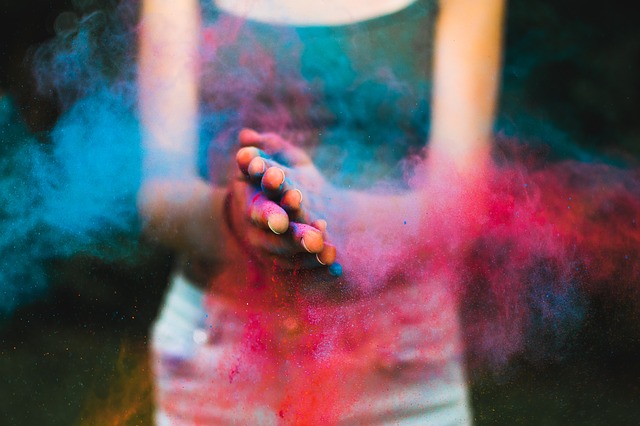
Why Is the Indian Festival of Holi Dangerous for Women?
- By C Barnett --
- 01 Mar 2018 --

Grabbing Women Inappropriately Is Too Often A Consequence of This Hindu Celebration
It is time for the Hindu celebration of Holi. This festival has been celebrated since the 4th century. It involves the throwing of colored powders, which are called gulal, in a street festival that is a wild celebration.
Why Is the Indian Festival of Holi Dangerous for Women?[/tweetthis]
While the festival is intended to celebrate the beginning of spring and the defeat of good over evil, there have been reported cases of women being attacked by men during the experience. Part of the culture of the festival has people engaging in personal assault with the suspect saying, “buran a maano, holi hai.” This translates into “its Holi, take no offense.”
Women have reported being groped by men, getting powder forced into their noses, and in some cases, rape. In an infamous incident, a woman who was attacked during Holi in 1987 subsequently ended up committing suicide.
This has led to protests by women’s groups at universities the night before Holi. Holi is actually celebrated in two parts: Holika Dahan and Rangwali Holi, with Holika Dahan being a celebration the night before Rangwali Holi. During the Rangwali Holi festival, groups of women have been wandering around different cities providing protection for other women. These groups call themselves Goonda Virodhi Abhiyan, or anti-hooliganism squad. Others have taken to social media to call out individuals for attacking women.
Can we please agree with this.
Bura maano, Holi hai.Because fun and play are great as long as they're not harming anyone, and it's sad that a festival as beautiful as Holi is being ruined for so many young girls, boys, men and women because of cretins harassing them. pic.twitter.com/yhSdL7eZKo
— Sukhnidh (@skhndh) February 27, 2018
Gender violence is a huge social issue in India. Nearly one-fourth of the men in India have committed violence towards women. One out of three women has experienced some form of violence, which, more specifically, comes out to over 200 million women. In comparison, 200 million is over half the population of the United States. There have also been particularly heinous attacks in the last year alone that have caused public outcry, including vicious attacks on small children.
While Holi is considered to be the most secular of Hindu festivals, it also creates a terrible impression about the culture of misogyny within India. However, there are recent examples that provide hope on the issue. Historically, female widows were not allowed to participate in the festival because their presence has been considered an ominous sign. Through social justice campaigns, they are now being allowed to participate, albeit at a smaller scale. The demonstration of reducing gender discrimination shows the potential for change that can occur so the festival can restore some of the reputation that has been lost.



















